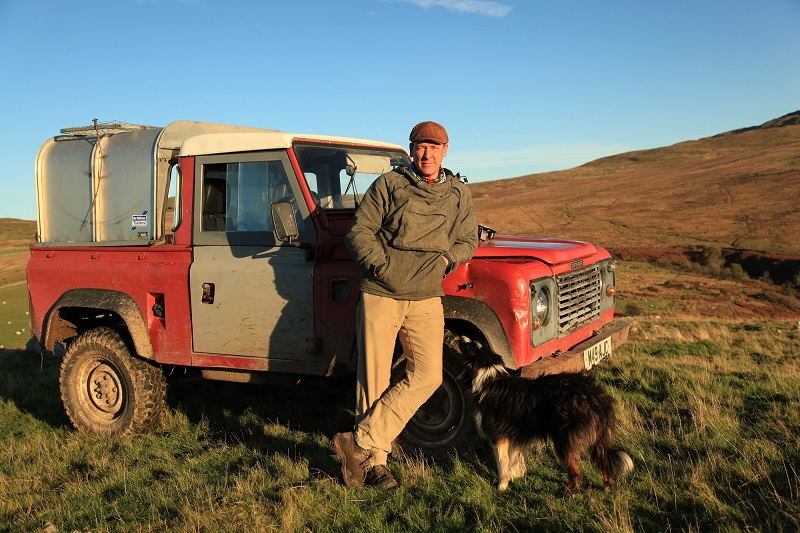Welsh TV farmer hits out at Blue Peter for urging kids to eat less meat

One of Wales’ best-known farmers has slammed children’s TV programme Blue Peter for urging its viewers to eat less meat as part of a climate change challenge.
Gareth Wyn Jones, from Llanfairfechan, criticised the CBBC show for making “sweeping statements” about meat consumption and the impact it could have on the impressionable minds of the youngsters who tune in.
The programme is offering green badges – similar to its famous blue ones – to youngsters who are environmentally friendly during the two-week challenged.
One of the ways to earn a badge is to choose a vegetarian option for a meal.
Blue Peter asked viewers to become part of a “green army” to tackle carbon emissions and climate change and its top suggestions to take part included turning off lights when you leave a room and switching from plastic bottles to reusable ones.
The campaign to encourage children to go meat free has prompted a backlash from the farming community with Gareth Wyn Jones, who is also a TV presenter himself, taking to social media to voice his concern.
Children can earn a ‘Supersize Green Badge’ by taking the two-week pledge to change these things in their lives.
Presenter Mwaksy Mudenda said: “Green team have added a supersize pledge. Together you can either switch off all lights and devices when leaving a room.
“Swap disposable plastic bottles for reusable ones or choose a meat-free meal.”
The show’s website added that children would be “reducing plastic pollution and boosting biodiversity – true climate hero behaviour”.
‘Viral’
In a video which has gone viral, Gareth Wyn Jones responded: “In this country we have got grass and grass can be produced very easily on marginal lands that you can’t grow crops.
“This land will produce some of the top-quality proteins – beef and lamb – and it is produced in a sustainable, regenerative, and very environmentally friendly way.
“Why aren’t we telling our children this? My kids know it – why is Blue Peter and CBBC with a massive platform with millions of young minds listening not taking the opportunity to give them a balanced argument, show them the facts, give them the opportunity to make that decision?
“These children aren’t stupid – give them an educated choice not just one sweeping statement that doesn’t work.
“I am disappointed as a farmer and as a father. Things need to change, we need to make sure we are talking to our children about seasonal food, locally produced food, environmentally friendly food, regenerative agriculture.”
One farmer online responded: “It is not meat production that we should be complaining about, but how it is produced. That should ‘always’ be the main consideration.”
Another added: “It’s no good telling children that less meat necessarily means a ‘greener’ diet. Let’s take out the oversimplification, and let the kids deal with the complexity. They are more than capable.”
Another added: “It’s no good telling children that less meat necessarily means a ‘greener’ diet. Let’s take out the oversimplification, and let the kids deal with the complexity. They are more than capable.”
A BBC spokesperson said: “We are not asking Blue Peter viewers to give up meat.
“That will be made clear both on the show and on our website which has been updated to reflect that buying seasonal food or local grass-fed meat can also make a difference to climate change.
“There are also other pledge options to choose from to earn a Green badge such as switching off lights or using reusable water bottles.”
Support our Nation today
For the price of a cup of coffee a month you can help us create an independent, not-for-profit, national news service for the people of Wales, by the people of Wales.





